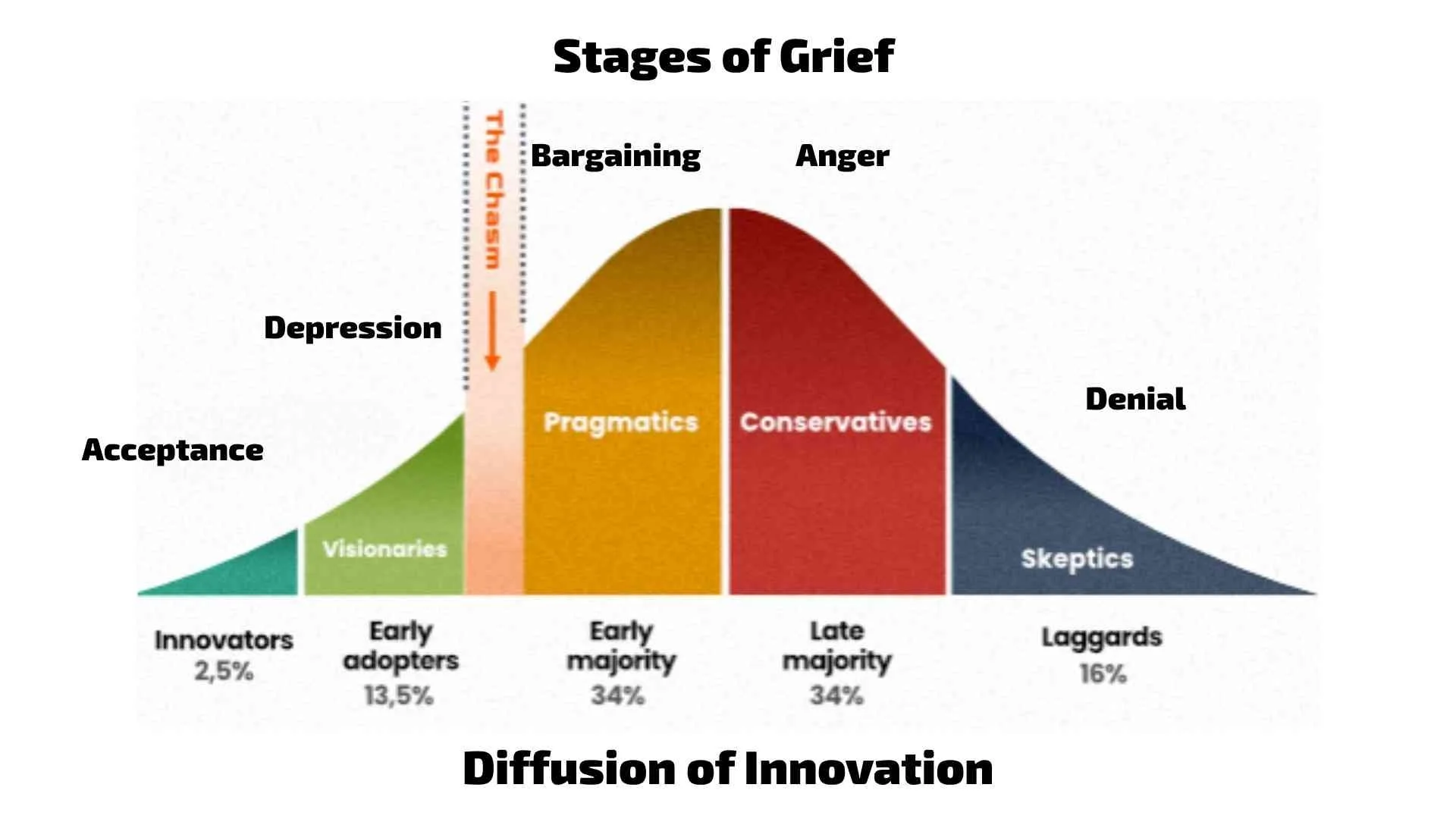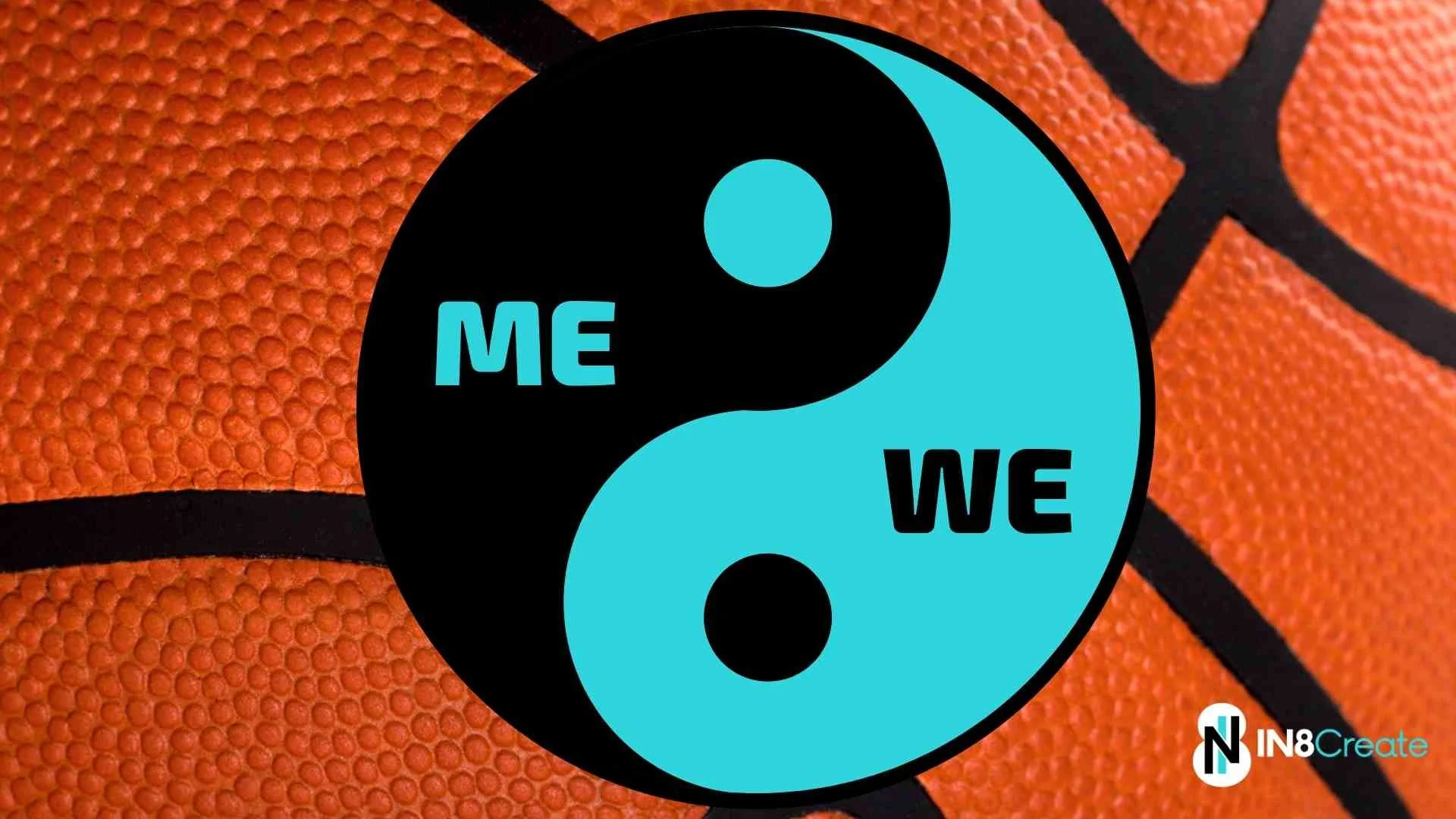
Insights

Why Teams Respond to Change at Different Speeds
When you introduce change—whether it's a new tool, process, reorganization, or way of working—you're asking people to move through a predictable sequence of psychological stages. These stages show up across three different frameworks that, remarkably, tell the same story:
Innovation Adoption → Change Transition → Grief Response

Why Team Building Doesn't Work
Just like treating my knee pain with ice and rest didn't address the piriformis muscle issue, team building activities that focus on surface-level bonding rarely address the deeper systemic problems affecting your team's performance.
The symptoms aren't always obvious. You have to dig into the cultural systems that exist to get at the root cause - or more likely, multiple root causes working together.

Those Who Don't Build Must Burn
As talent becomes harder and harder to attract and retain: Don't sacrifice your A-players to accommodate your C's.
That negative team member who's "not that bad" and "has some good qualities"? They're costing you far more than their salary. They're costing you the engagement, creativity, and performance of everyone around them.
There's an old Hindu proverb that says, "There are hundreds of paths up the mountain, all leading in the same direction, so it doesn't matter which path you take. The only one wasting time is the one who runs around and around the mountain, telling everyone that his or her path is wrong."

The Blacksmith's Guide to Team Transformation
Is your team ready for change? Look for these signs:
Trust that runs deep enough for people to be vulnerable about their struggles
Communication that flows freely without political filtering or fear
Shared commitment that burns bright enough to sustain effort through difficulty
Without these foundational elements, your change efforts will feel like hammering cold steel—lots of noise, little progress, and potential damage.

Teams and Systems Thinking
Systems thinking isn't intuitive for most people. We naturally focus on what's directly in front of us. That's why deliberate effort to build systems literacy pays such enormous dividends.
Teams that understand systems principles:
Make better decisions because they consider ripple effects
Collaborate more effectively with other teams
Identify and address root causes rather than symptoms
Create sustainable solutions rather than quick fixes that create long-term problems

Team Trust Is Built in Moments Most People Miss
We create mental shortcuts about these people, usually based on very limited information, and those definitions influence our collaboration moving forward. Often, these snap judgments become self-reinforcing cycles that can be difficult to break.

When Teams Unite Under Pressure
These scenarios never cease to amaze me because of how deeply connected they make us feel. They tap into our identity as valued members of our work community, and when that community faces a crisis, people respond instinctively. This might mean staying late, contributing extra effort, or stepping outside comfort zones to help the team succeed.

Witnessing True Team Engagement
Think about it - when was the last time you saw an entire team fully present, genuinely interested in each other's perspectives? Not just going through the motions of team building, but truly connecting?

The Art of We vs Me in Teams
When everyone understands and plays their role, it showcases individual talents while bringing out the best in the team. Some people are natural scorers, others are defensive specialists, and some excel at rebounding. In the workplace, these roles look different - maybe you have your strategic thinkers, your detail-oriented executors, and your relationship builders - but the principle remains the same.

The Secret Sauce of Great Teams: Emulsification
How many of us have worked with people who are like oil and water? Team members who just don't naturally mix, creating friction rather than flow? Well, just like our hollandaise, we just need to find the right emulsifier!
Through our work with teams, we've discovered that effective team emulsification happens in layers, each one strengthening the bonds between team members.

The Hidden Constraints of Communication
We might already be dealing with invisible communication constraints every day. Maybe it's assumptions we make about shared knowledge, specialized jargon that excludes others, or organizational silos that prevent open dialogue.
Communication is challenging enough when we can be direct. Add in artificial constraints, and it becomes a complex dance of trying to get what you need while staying within boundaries you can't even mention.

Use the Contra Code to Level Up Your Team
In today's knowledge economy, no role exists in isolation. Your success is interconnected with adjacent teams and roles – both up and down the organizational hierarchy. Like the Contra code itself, success requires understanding patterns and sequences that might not be immediately obvious.?

